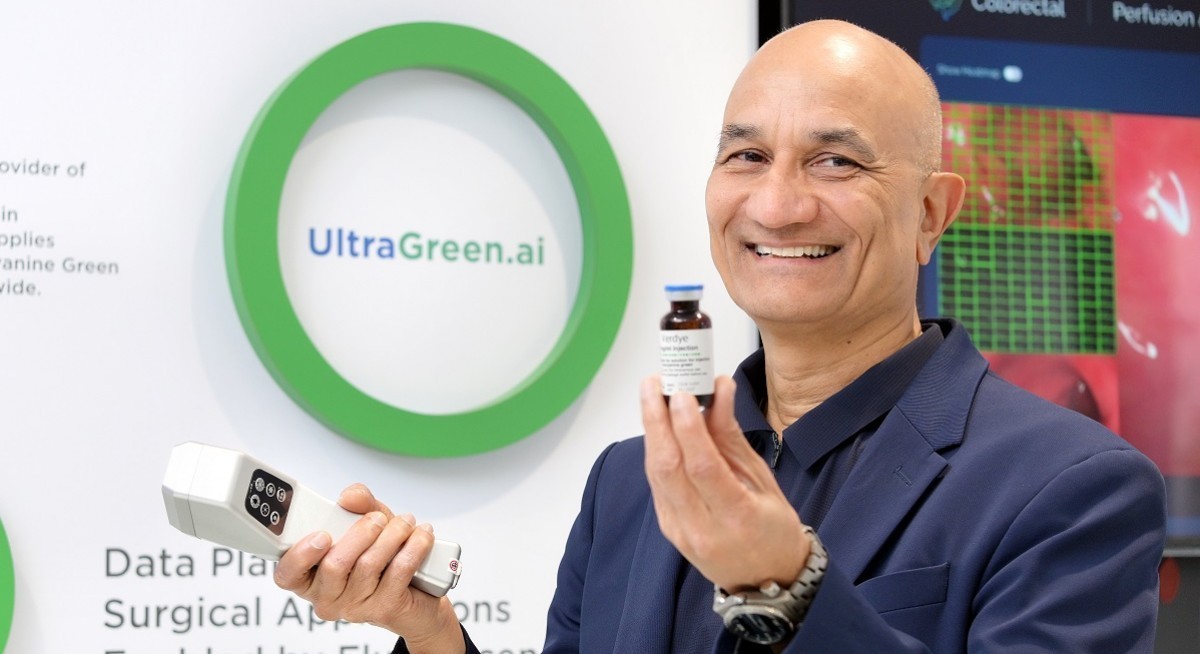“Fortunately or unfortunately, we are pretty profitable. So actually, we don’t need the money,” says Sajwan of a potential listing of his company.
The serial entrepreneur sees an IPO “as just a strategy to raise more capital”. Still, this mezzanine funding round, as Sajwan calls it, marks a shift for the formerly self-funded firm.
“One of the reasons we did this round was to actually establish ourselves as a credible name across the globe, basically. If you look at the two names we have chosen, one gives us a strong credibility because of their background from Temasek; and Vitruvian, because they invest in a lot of healthcare assets across the globe,” he adds.
With ample funds, Sajwan says he prioritises growing the business over raising capital. “I’m not very focused on how I raise money; it’s more about what the business requires. So, if an IPO seems to be a good place to get money, I’ll do that. If SGX is a great marketplace, we’ll be happy to do it. But I’m always focused on building the business brand and making a really profitable business.”
See also: UltraGreen.ai's Sajwan aims to light up the healthcare market with 'matcha powder'
65 Equity Partners co-led the US$188 million round alongside UK-headquartered Vitruvian Partners and August Global Partners, which was spun out from EDB Investments (EDBI). The only other investor in the round was UltraGreen.ai chairman Kwa Chong Seng.
While Sajwan stopped short of revealing the exact investment sums, he says 65 Equity Partners and Vitruvian Partners invested larger amounts than August Global Partners and Kwa.
Kwa, who was formerly chairman of the Singapore Exchange and other listed companies, joined the board of UltraGreen.ai as chairman in September 2024. According to Sajwan, the latest round marks Kwa’s first investment into the company.
See also: Trendlines portfolio company Limaca secures US distributor for its biopsy system
Following the latest fundraise, “two or three” board directors will be appointed from the investors, says Sajwan, who started his entrepreneurial journey in telecommunications. “To be honest, I’ve never had companies with board members, so this is a first for me. But once an IPO happens — whenever it happens — we’ll have a different set of board members.”
UltraGreen.ai is a medical and surgical imaging company that aims to improve surgery outcomes and patient recovery. Its three main products are indocyanine green (ICG), a type of fluorescence agent; its IC-Flow imaging system; and UltraLinq software, which specialises in cloud-based medical imaging solutions.
Used in surgeries, ICG is a green powder that is reconstituted with water and injected into the human body. Nicknamed “matcha powder” by Sajwan for its green colour, ICG enhances the visualisation of blood flow, lymphatic systems and tumour margins during surgeries. It has successfully been registered for distribution in 28 countries and is supplied under exemptions in over 40 countries.
One use case is to diagnose foot ulcers among diabetics, who may have lost sensation in their feet. “With ICG, we can actually help you figure out whether you have enough blood flow for the wound to actually heal or not.”
ICG is akin to the iPhone, says Sajwan. “iPhone is just a device and an enabler to take data to the cloud, process it and deliver new applications.”
Now, UltraGreen.ai wants to use ICG as an enabler for its data platform, gathering information from all the surgical and cardiac procedures conducted by surgeons. ICG 3.0, as Sajwan calls it, is the company’s next frontier. By applying artificial intelligence (AI), UltraGreen.ai can create data models and deliver “surgical precision”, he adds.
Using the example of diabetics once again, Sajwan says UltraGreen.ai’s “preventive tool” can identify foot ulcers in the early stages, which means patients are spared amputation procedures down the line.
To stay ahead of Singapore and the region’s corporate and economic trends, click here for Latest Section
UltraGreen.ai’s tech also eliminates magnetic resonance imaging (MRI) machines for similar procedures, says Sajwan. “Tier two, tier three cities across the globe don’t have MRIs easily available. We are solving that problem… We’re actually starting the conversations in Singapore as we speak.”
Manufacturing in S’pore
Funds from the funding round will be deployed to UltraGreen.ai’s new strategy to create new market segments, says Sajwan, including bringing its current camera manufacturing operations from Germany and Ireland to Singapore.
In certain markets like Asia, hospitals and clinics cannot justify purchasing “very expensive cameras” for the imaging procedures involving ICG, he adds. “We have built a very low-cost camera that does almost all the work required, and rather than selling it, we’ll actually lease it. Leasing allows us to democratise the technology to a point where you can provide surgical precision across the globe regardless of the cost.”
The manufacturing can be done out of UltraGreen.ai’s current premises in Macpherson Road, but the company will have to add between 45 and 60 staff here. In total, UltraGreen.ai has a staff strength of between 60 and 80 people worldwide.
The company has two chief commercial officers: one for the Americas and another for elsewhere in the world. Sajwan says there is an Asia team working on commercialisation that reports to Fidelma Callanan, CCO Ex-Americas, who is based in Ireland. “A lot of our clinical trials are being done in Europe right now. So we want to make sure we integrate that knowledge.”
Read more about UltraGreen.ai:
65 Equity Partners leads US$188 mil investment in UltraGreen, valuing medtech firm at US$1.3 bil (September)
UltraGreen.ai is said to mull up to $400 mil IPO in Singapore (April)
UltraGreen.ai's Sajwan aims to light up the healthcare market with 'matcha powder' (December 2024)




